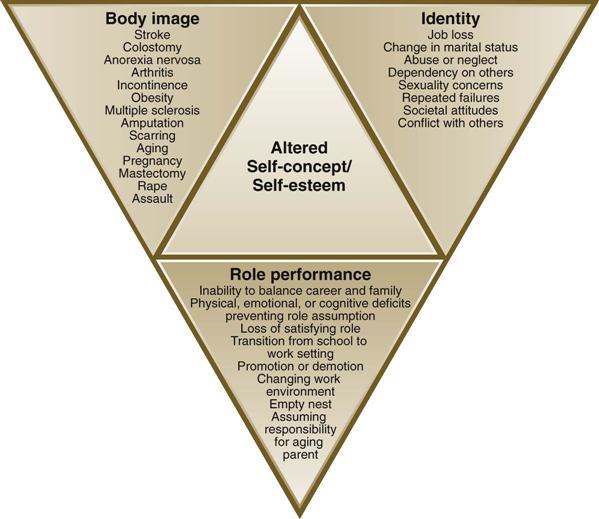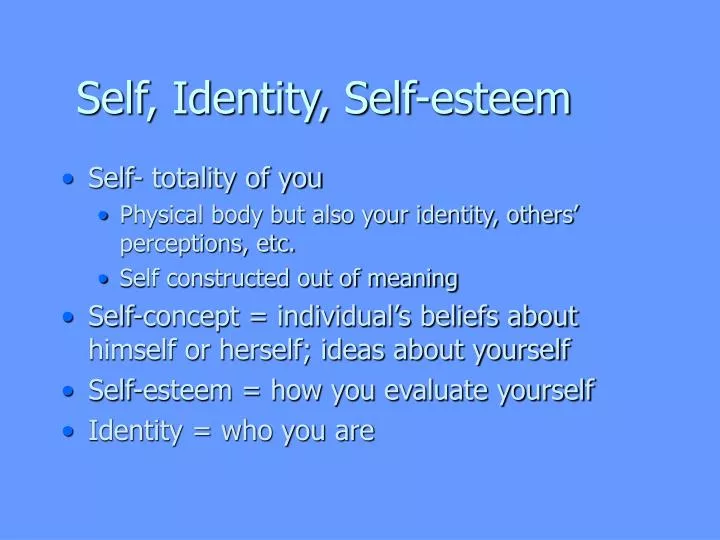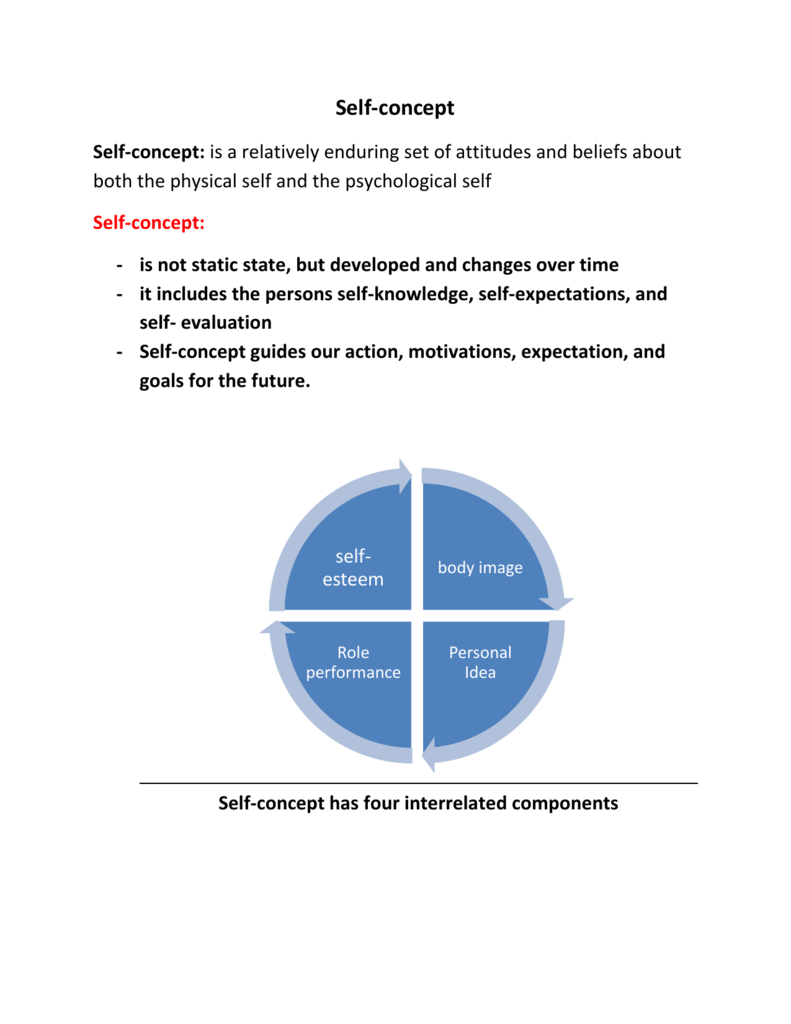Self-concept and self-esteem are two closely related psychological constructs that play a significant role in how we view ourselves and interact with the world around us.
Self-concept refers to an individual's perception of who they are, including their characteristics, beliefs, values, and behaviors. It is a person's self-image, or the way they see themselves in their own mind. Self-concept is formed and shaped throughout an individual's lifetime, and is influenced by a variety of factors, including their experiences, interactions with others, and cultural and societal norms.
Self-esteem, on the other hand, is the measure of an individual's overall sense of self-worth or self-value. It is the way in which an individual evaluates their own worth as a person, and can be influenced by their self-concept as well as their successes, failures, and relationships. High self-esteem is characterized by a positive evaluation of oneself, while low self-esteem is marked by a negative evaluation of oneself.
While self-concept and self-esteem are related, they are not the same thing. An individual's self-concept is their perception of who they are, while self-esteem is their evaluation of their worth as a person. It is possible for an individual to have a positive self-concept, but low self-esteem, or vice versa.
For example, an individual who sees themselves as kind, caring, and intelligent may have a positive self-concept, but if they consistently fail to meet their own high standards or feel they are not receiving the recognition they deserve, they may have low self-esteem. On the other hand, an individual who sees themselves as selfish, aggressive, and dishonest may have a negative self-concept, but if they feel they are successful in achieving their goals and are respected by others, they may have high self-esteem.
It is important to maintain a healthy balance between self-concept and self-esteem. Having a positive self-concept can help individuals feel confident and capable, while high self-esteem can lead to feelings of self-worth and self-acceptance. On the other hand, having a negative self-concept or low self-esteem can lead to feelings of inadequacy and low self-worth, which can have a negative impact on an individual's mental health and overall well-being.
In conclusion, self-concept and self-esteem are two important psychological constructs that play a role in how we view ourselves and interact with the world around us. While they are related, they are not the same thing, and it is important to maintain a healthy balance between the two in order to promote overall well-being and self-acceptance.







:max_bytes(150000):strip_icc()/what-is-self-concept-2795865_v2-a552feed8c764c5ca607424250970155.png)
